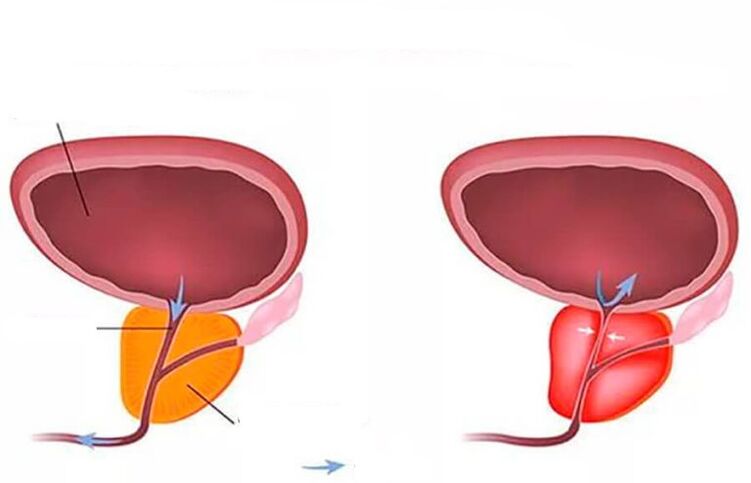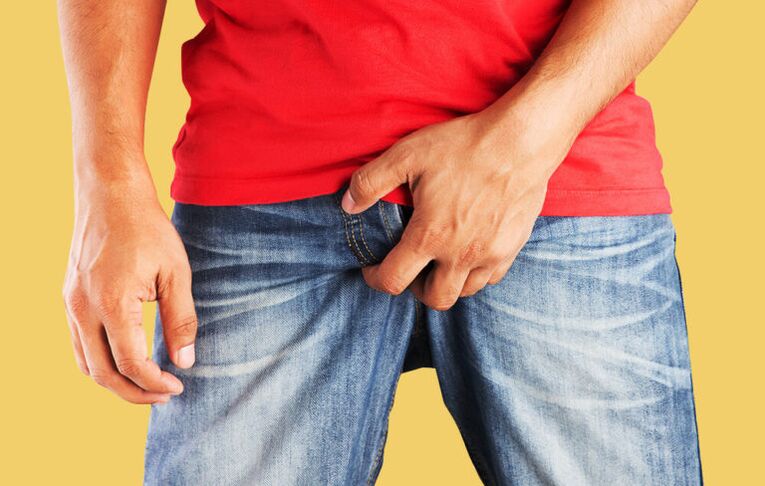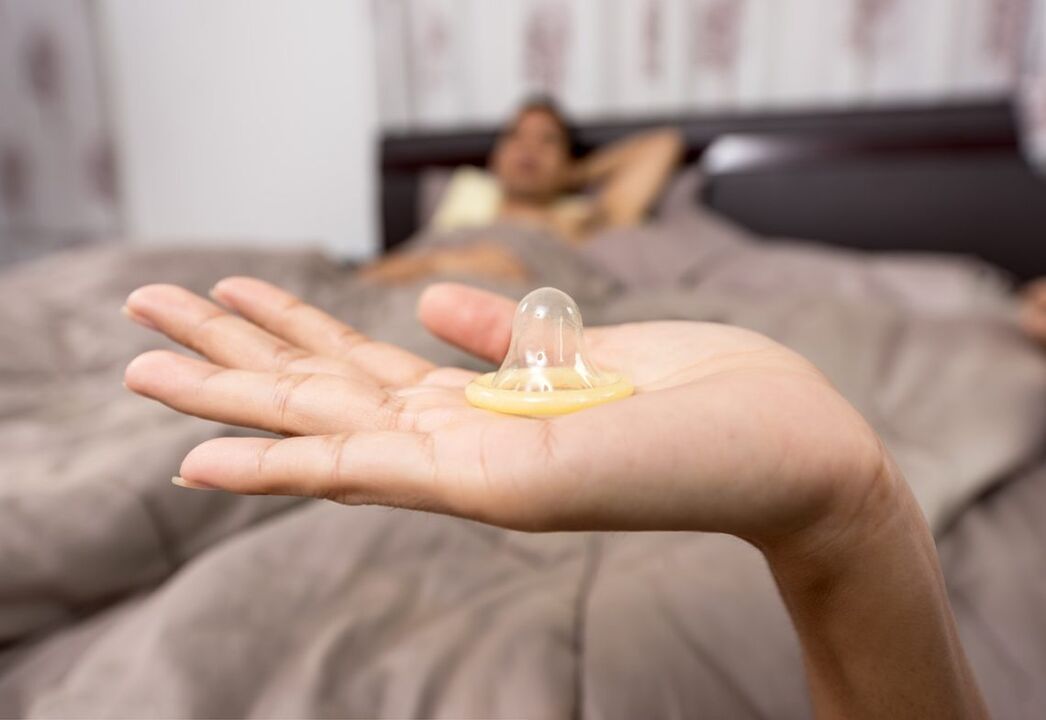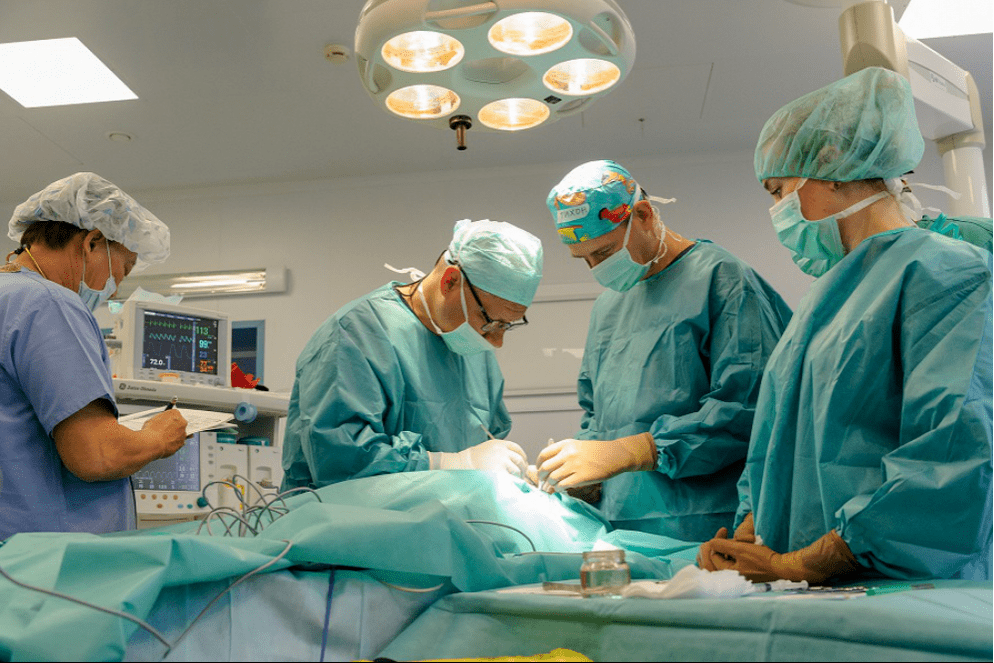The prostate gland is called the "second heart" of a man, because it is the prostate that contributes to the maintenance of erectile function and testosterone synthesis - the production of the main male hormone. Inflammatory organ damage is diagnosed in every tenth man, and most patients do not know the correct answer whether it is possible to have sex with prostatitis and how close relationships work on the course of the disease.
Urologists say: prolonged abstinence leads to stagnation of blood in the prostate, which aggravates the condition and chronicles the disease. However, it is impossible to unequivocally answer that lovemaking with prostatitis is useful - it all depends on the stage of the pathology and the individual characteristics of the patient. We will deal with this issue in more detail below.

What is prostatitis
Prostatitis is an inflammation of the prostate gland, when the organ increases in size several times and sometimes hyperplasia is observed. The disease develops as a result of age-related changes and in combination with the following factors:
- Inguinal hypothermia - hypothermia of the genitals;
- Hormonal imbalance;
- Abuse of bad habits;
- Impact of stress.

The first symptoms of the disease are severe pain during urination, enlargement of the prostate, as a result of which a man has an inadequate sex life, manifested by the following features:
- Lack of persistent erection;
- Frequent urge to urinate;
- Prolonged nocturnal erections;
- Accelerated ejaculation;
- Decreased performance, increased fatigue;
- Decreased sex drive.
In the absence of pathologies, blood rushes to the penis, as a result of which the organ is excited. A man sees a woman, an attraction wakes up. The affected prostate gland increases with the penis, which gives the patient uncomfortable, painful sensations, therefore, erectile ability decreases, intercourse is not performed.
Intimate life and prostatitis
All men after 30 years of age are at risk of developing prostatitis. Inflammation of the prostate is an unpleasant diagnosis, the lack of treatment of which brings chronic pain of a spasmodic nature in the lower abdomen, increased subfebrile values, chills, decreased erection, prostate adenoma is a benign tumor.
Opinions about intimacy with prostatitis were divided into two camps, and not only patients suffering from the disease, but also doctors expressed their opinions. Some of the respondents believe that sex is necessary in case of illness - to maintain male functions, others, on the contrary, are of the opinion that sex interferes with the normal functioning of the affected organ.
Reference! The secretory organ produces the fluid necessary for full sexual intercourse. In the absence of regular intimate relationships, prostate dysfunction occurs.

Prostatitis therapy involves massage. However, not all patients have the patience and regularly massage the organ. Sex implies a kind of massage therapy: during the final phase of sexual intercourse, the pelvic muscles and glands contract.
With ejaculation (ejaculation), there is an increased release of prostate secretion, so sex is beneficial. But the disease differs in two types of course:
- Sharp;
- Chronic.
Each form of pathology has nuances that are important to consider when making recommendations and prescribing.
Sex with acute prostatitis
Sex and exacerbation of pathology are incompatible concepts. The patient feels all the signs of the disease:
- Pain in the abdomen;
- Difficulty urinating or frequent urge to urinate
- Painful sensations during urination;
- A burning sensation in the perineum and urethra;
- The rise in temperature indicators;
- General malaise.

Such a state does not dispose to intimacy, the man's erectile function decreases. Moreover, if prostatitis is triggered by an STI, there is a high risk of contracting a partner with sexually transmitted diseases. In addition to treating prostatitis, a man also needs to cure the infectious process and engage only in protected sex.
With proper treatment, the acute process takes 3 to 5 days.
Sex with chronic prostatitis
During chronic prostatitis, a male representative does not feel painful symptoms, therefore having sex is necessary and acts as a massage on the prostate gland. In addition to active sexual intercourse, one should not forget about other therapeutic measures prescribed by a doctor.
The harm of intimate relationships
Attention! Doctors do not advise to engage in sex in a polygamous manner - in order to avoid complications, stick to an intimate relationship with one partner.
In the absence of work of the organ, the functioning is lost. Sexual abstinence provokes stagnation of blood in the small pelvis, which leads to a relapse of the disease. If at the time of treatment there is no permanent sexual partner, doctors recommend masturbating. Masturbation has a massaging effect, not deep, but better than a complete lack of sex - congestion in the pelvic organs is prevented.

Sometimes patients, after diagnosing the disease, begin to have promiscuous sexual intercourse. It is better to organize sexual contacts: the frequent change of partners threatens with a microflora conflict, which entails a relapse.
If bacterial prostatitis is diagnosed, it is necessary to refrain from making love. Sexual life leads to an aggravation of symptoms and is the cause of the spread of bacteria to the urinary organs - the kidneys and bladder. During ejaculation, pathogenic microorganisms, passing through the urethra, affect the urinary system.
Before having sex for acute bacterial prostatitis, antibiotic therapy should be started first. It is advisable to start sex life after healing - in order to avoid complicated conditions.
The importance of sex in prostatitis
When the prostate gland is inflamed, it is necessary to make love because there is a rush of blood and the organ contracts. During intimacy, the decay processes formed during inflammation come out. When intercourse is completed, toxins enter the secret of the prostate and are excreted along with it.
Studies have shown that 50% of the men surveyed have erectile dysfunction during illness, and 25% of males have a decrease in sexual desire. Almost 90% of the respondents, when making a diagnosis, less often have sex, and more than half of the relationship with a woman deteriorates or stops altogether.
In such situations, it is advised to use special means to increase sex drive.

Effect of disease on semen
Inflammation of the prostate negatively affects a man's reproductive function. Sperm quality deteriorates, so sometimes infertility and impotence are diagnosed due to damage to the prostate gland. Reduced attraction to a woman is seen due to a decrease in the synthesis of androgens - hormones responsible for maintaining male functions.
The prostate gland is responsible for the production of sperm. However, in the presence of organ inflammation, the production of ejaculate decreases, and in the presence of complications, aspermia is observed - the absence of sperm. It is difficult for a sick man to reach orgasm. Often patients complain of weak ejaculation, for some ejaculate does not ejaculate, but flows, and with discharge, the partner feels discomfort, burning, pain.
The sperm thickens. Infertility is characterized by a decrease in sperm count.
Note! Most often, men notice changes in sperm when it changes color or consistency.
Prevention
If a man suffers from prostatitis, it is important to have sex in a condom until he is completely cured. With inflammation of the prostate gland, the patient's immunity decreases. Interacting with someone else's microflora can aggravate the condition. With a decrease in the protective functions of the body, foreign conditionally pathogenic flora enters the urethra, and then into the prostate.

Oral sex also implies security, as there is an accumulation of bacteria and harmful microorganisms in the oral cavity. Pathogenic microbes are safe for a healthy person, but they are dangerous for a patient with reduced immunity.
With prostatitis, it is permissible to engage in any kind of sex, up to anal. However, in the acute period, abstinence is recommended - in order to avoid aggravating the condition.
Sex after treatment
A male disease requires compulsory treatment. Therapeutic measures depend on the severity of the pathology, the general condition of the patient. Doctors offer many different ways - from therapeutic ineffective to radical - through surgery.
Reference! In the absence of treatment, the disease in 90% of cases flows into inflammation of the kidneys and the formation of calculi in the urinary organs, and the risk of adenoma and prostate cancer also increases.
In advanced cases, urologists prepare the patient for surgery, after which complications rarely occur - only in 10% of cases, and rehabilitation is easy. After the operation, the patient is advised to observe the following rules regarding intimacy:
- It is allowed to return to intimate life only after 3 - 4 months;
- During the adaptation period, it is important to exclude physical overstrain;
- The establishment of the urinary process is facilitated by herbal medicine sessions.

Early sexual intercourse after surgery threatens mental disorders and potency - against a psychological background.
Sex after surgery is characterized by the absence of ejection of seminal fluid, a gradual improvement in erection. It is important for a man to have a trusting relationship with a partner, to avoid stressful situations, and it is important for a woman to provide trusting assistance to a partner, because a man without a prostate gland can feel inferior.
Restoration of sexuality depends on the operating technique:
- Transurethral resection - complete or partial removal of the prostate. An intimate life is recommended 30 days after the operation. After surgery, conception will not take place - sperm is thrown into the ureter.
- Cavity prostatectomy is a rare surgical method, most often the prostate is removed by laparoscopy. But at an advanced stage, this technique is being performed. Sex is allowed after one and a half to two months - due to the high risk of postoperative complications.
- Laser prostatectomy is a minimally invasive technique that allows you to start sexual intercourse a couple of weeks after the operation, depending on the patient's well-being.
If a man showed signs of impotence before surgery, it is impossible to restore potency after surgery.

Prevention
The most important preventive measures for prostatitis are regular sexual activity. Sex with an inflammation of the prostate has the following positive effects:
- Uncomfortable, unpleasant sensations do not bring pleasure, but orgasm has a beneficial effect on male potency, favors healing from a disease, and eliminates pain. If a man is worried about pain, doctors advise taking an anesthetic drug an hour and a half before intercourse.
- When diagnosing acute bacterial prostatitis, massage is categorically contraindicated, but no one cancels sex - make love more often to stimulate blood circulation, but do not forget about contraception - condoms.
- Having sex, it will be possible to completely get rid of stagnant processes in the pelvic organs.
Reference! According to statistics, in men who have a constant sexual partner and make love at least 2 times a week, the prostate gland is inflamed less often.
The most effective therapy for prostatitis is sexual activity. Intimacy promotes blood flow to the pelvic organs, including the prostate, prevents congestion, and has a beneficial effect on overall health. If a man has dysfunctions of the genital area, it is recommended to consult a urologist with the appearance of the first symptoms in order to avoid complications. The doctor will give the necessary recommendations and prescribe the treatment.

Basic rules for having sex:
- Do not neglect intimacy, but do not have sex too often - the frequency of sexual pleasure should not be less than twice a week;
- It is important that sexual intercourse is complete - completed with ejaculation;
- If in the process there is pain, burning, it is recommended to refrain from sex until the painful symptoms are completely eliminated;
- During therapeutic events, it is better to use condoms - in order to avoid the conflict of microflora and the transmission of STIs.
























